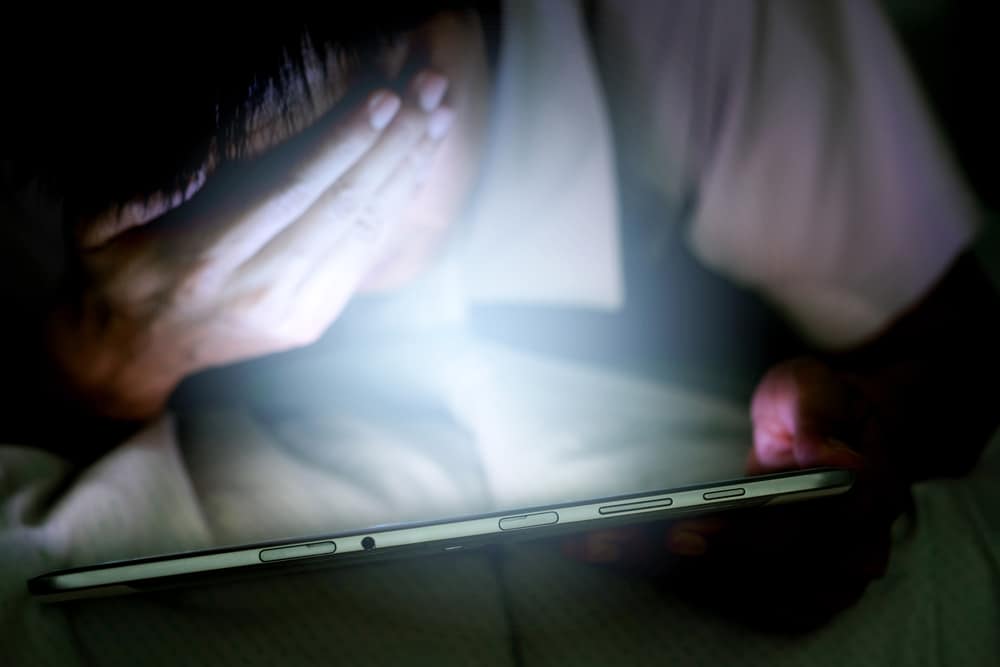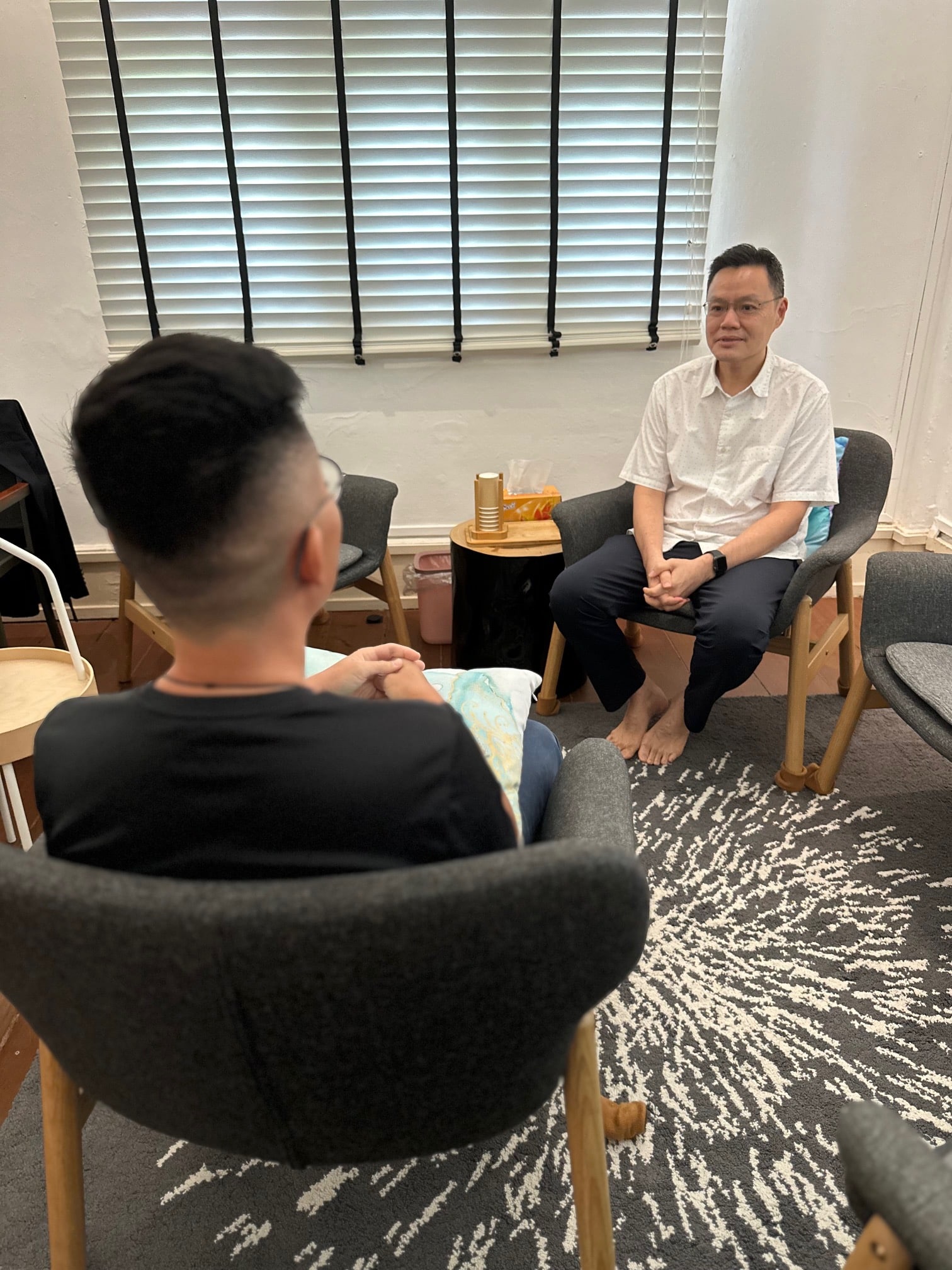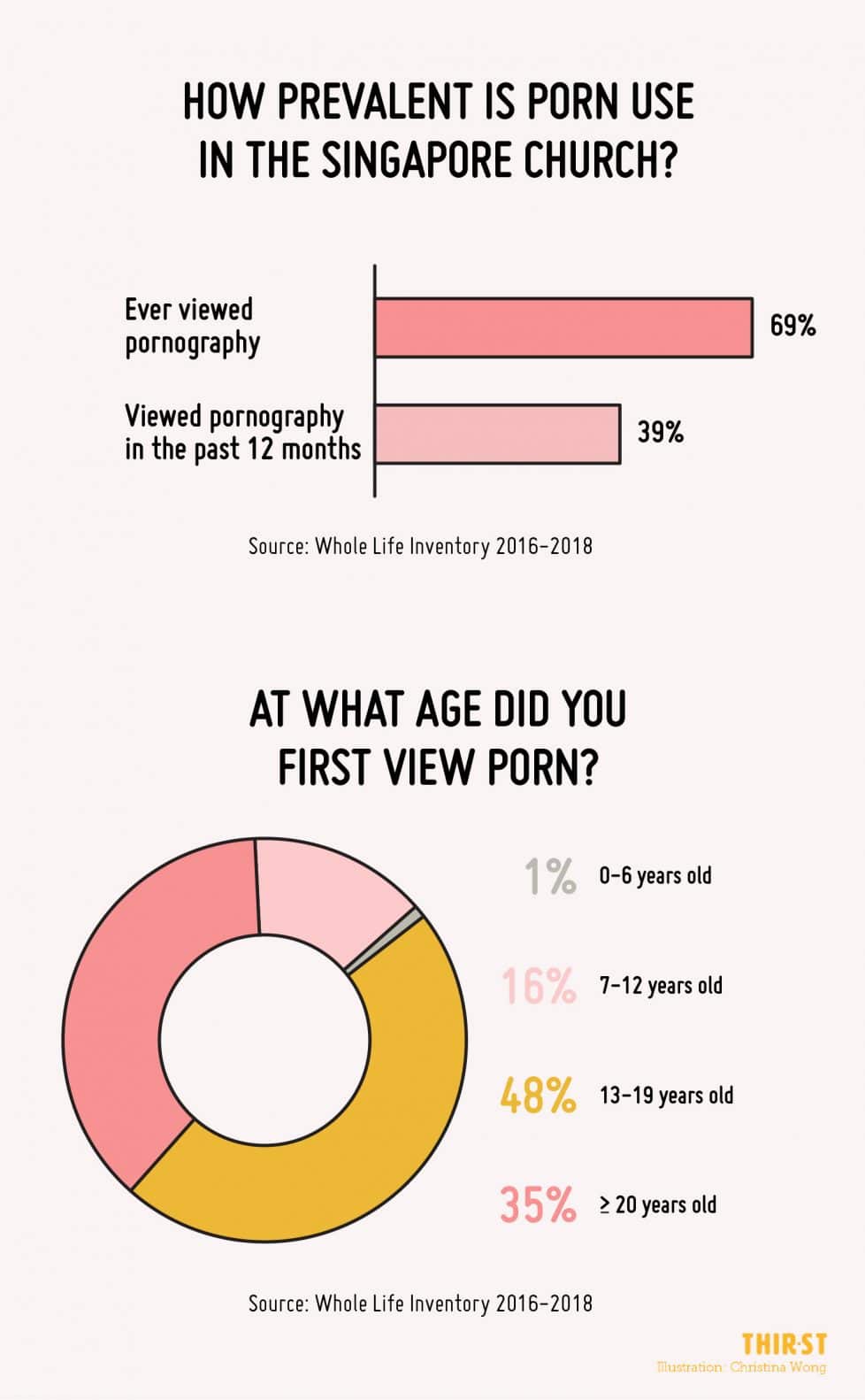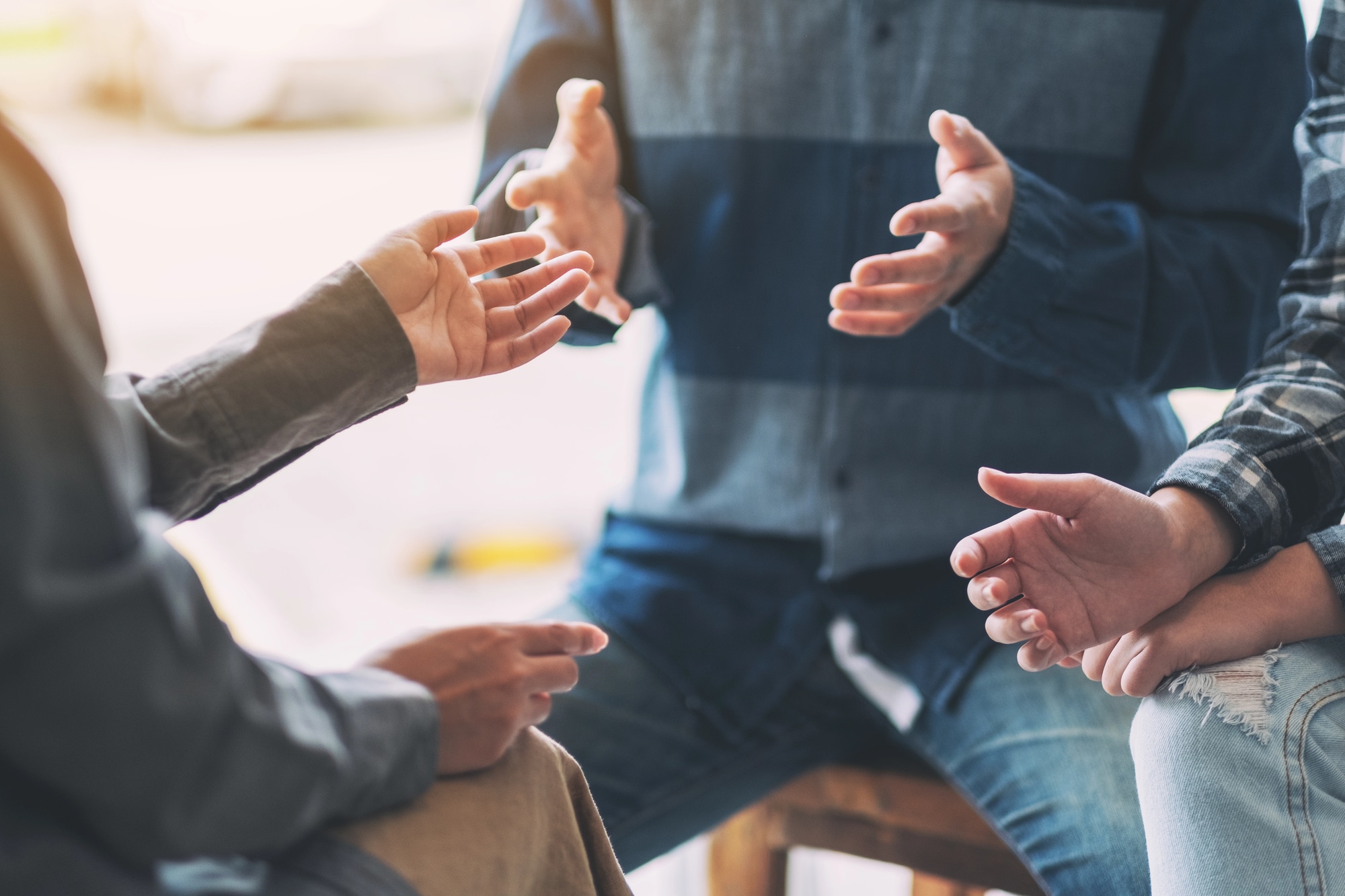Tackling porn addiction: What if my spouse or my child is struggling?
by Gracia Chiang // September 20, 2024, 11:36 am

Suggestions such as more Bible reading, memorisation of verses and prayer are ineffective in treating porn addiction, says a Christian psychologist. Photo from Depositphotos.com.
In Singapore, the number of youth aged 19 and below arrested for sex crimes rose 30 per cent from 2022 to 2023.
One of the reasons cited was their exposure to sexually explicit materials or adult sexual activity.
Bringing together leading experts in the field to further unpack the issue of pornography addiction, Indigo & Co. and Lakeside Family Services are holding a symposium titled Pornography: The New Drug?.
Ahead of the event in November, we speak to Dr Eric Dooley, a clinical psychologist in the US, and Jeffrey Pang, a counsellor at Indigo & Co., a local non-profit that provides mental health services for clients with sexuality and gender issues.
Sharing from their experience of helping men and women through addiction, both offer a sobering perspective on the problem of pornography and briefly explore potential solutions.
How have you seen porn affect families?
Jeffrey: I know of a wife who filed for divorce because her husband was hooked on pornography. Her husband had been watching pornography since he was a teenager.
However, she only found out about it after they got married. Her husband also has a condition known as porn-induced erectile dysfunction. This means that the husband is unable to have physical sexual intimacy with her.
In another case, a husband was hooked on pornography and he needed progressively more stimulus to get a similar dopamine “high”.
Eventually, he engaged in voyeurism and was caught by a off-duty police officer. He was sent to prison for six months. It was very hard for his wife and six-year-old son.
In what ways has the issue of porn become worse or taken a different turn in recent years?
Dr Dooley: It has grown worse by the sheer amount available; content has also become increasingly hardcore and violent¹.
The reason is because of demand and the fact that addiction is progressive, such that the individual requires more and more to obtain the same effect previously.
It has been frequently stated that the main reasons for the increase in pornography are the three As: affordability, availability and anonymity².
Jeffrey: If one traces the growth of pornographic web pages on the internet, one can see the exponential increase from 2010. This coincides with the advent of portable smart devices that enable easy access to pornographic content.
It is estimated that there are close to three billion pornographic web pages.

While porn use is usually shrouded in secrecy and shame, the opportunity to have open and non-judgemental conversations is beneficial to recovery. Photo from Depositphotos.com.
For Christians struggling with this addiction, what specific challenges do they face?
Dr Dooley: Although the Bible says “no temptation has overtaken you that is not common to man” (1 Corinthians 10:13), most Christians who struggle with addiction wrongly believe that they are the only ones suffering in such a way.
The guilt and shame, as well as a fear of judgement and condemnation, prevent people from reaching out for help.
“Addiction happens in isolation; recovery happens in community.”
Well-intended but misguided attempts to counsel addicts with suggestions such as intervening with more Scripture reading and memorisation, prayer and accountability are also ineffective in treating real addiction.
Repeated failure of efforts to stop can lead a person to cover up the behaviour in a futile attempt to deal with it on their own.
While “Christian” solutions may be beneficial if applied correctly, my own dissertation shows that negative coping strategies exacerbate addiction.
Since porn addiction has such a huge impact on the brain, how can one reverse or shake off its effects?
Dr Dooley: Addiction happens in isolation; recovery happens in community.
This community refers to those who are in treatment for sex addiction so that there can be vulnerability, honesty and mutual support, which, sadly, is not the norm for how many Christians approach addiction.
It is necessary for a person to receive help, which often includes 12-step groups, plus individual and group psychotherapy with a counsellor trained in addressing addiction.
Jeffrey: Many of my clients have attachment injuries and trauma from their past, often during childhood, and research has shown that such events can result in compulsive behaviours like sex and pornography addiction³.
As such, it is difficult for such a person to overcome their addiction to sex and pornography without first addressing the attachment and trauma issues from their past. This requires intervention by a professional counsellor trained in sex addiction.

Practical solutions can be helpful in curbing porn consumption, but counselling is needed to unpack deep-seated issues that are contributing to an addiction, says Jeffrey (right).
But the good news is that our brains have a characteristic known as neuroplasticity, meaning that our brains can change.
That means that if a person who struggles with addiction to pornography is willing to seek professional help and incorporate new healthier habits, he or she can reverse the effects of addiction.
In addition, there are some churches in Singapore that have support groups for members struggling with pornography.
There is also a Celebrate Recovery group that meets at International Baptist Church of Singapore. It is based on the 12-steps philosophy but with Christian principles. However, the group is meant for all forms of addictions and dependency issues, not just pornography and sex.
What about those who view porn occasionally? When does it cross the line to become an addiction?
Dr Dooley: Addiction is a clinical psychological term that must meet basic criteria that has been established by the American Psychological Association and the World Health Organization.
Typical symptoms of addiction are frequent unsuccessful efforts to stop or cut down, cravings, increased usage, tolerance, neglecting responsibilities and continued use despite negative consequences.
Occasional viewing, while perhaps a moral, spiritual or social problem, is not the same as addiction.
Jeffrey: The symptoms of addiction, according to the International Classification of Diseases (ICD 11th Revision), is a loss of control and repeated failures at attempts to stop.
However, apart from moral or religious objections, be aware that occasional viewing of pornography can lead to addiction.
Addiction, whether it be substance or behavioural, will have an adverse impact on one’s life. And the issue with addictive substances or behaviour is that one can easily slip into addiction without realising it.

As one of the speakers for the upcoming symposium, Dr Dooley will be sharing more on how pornography affects the brain as well as the neuroscience of addiction. Aside from being a psychologist, he also has experience planting and pastoring churches in Southeast Asia.
What should a husband or wife do if they discover their spouse is viewing porn?
Jeffrey: First, if the spouse is a Christian, he or she should pray for his or her spouse who is struggling with pornography. I believe that there is definitely an element of spiritual warfare when it comes to pornography.
Second, seek help or support for yourself.
Understand that a person who discovers that his or her spouse has been watching pornography in secret can experience a range of emotions such as betrayal, hurt, anger and sadness. The help can come in the form of people whom they trust and professional counsellors.
Third, have honest conversations with your spouse.
Seek to convey your thoughts and emotions to your spouse. But also seek to understand the extent of the issue, such as how long and how often your spouse been consuming pornography, and why is he or she is doing so?
Lastly, seek professional help if one suspects that his or her spouse is addicted to pornography.
He or she may also consider seeking couple counselling if there are unresolved issues in their relationship.
What are some practical things that parents can do to try and prevent their child’s exposure to porn?
Jeffrey: First, it is important that they focus on cultivating a relationship with their teenagers.
In today’s post-truth and social media era, adolescence can be a time of confusion and turmoil as teenagers seek to establish their own identity.
It is only in the context of a relationship where there is trust and mutual respect that parents can then set sensible and practical rules around the use of social media, internet and mobile devices.
Without such a relationship, rules simply engender rebellion or drive behaviours underground.
Second, parents need to educate themselves on social media and the internet, and the potential dangers that lurk within them because this is the world that their teenagers live in.
Third, sensible rules such as time restrictions on usage, technical controls such as parental controls and filter software, and physical controls such as leaving mobile devices outside the bedroom at night and leaving the room door open when using the internet, can be helpful in minimising exposure.

An infographic from a 2019 Thir.st article citing statistics from Focus on the Family’s Whole Life Inventory, which gathers data from churchgoers across Singapore.
How can parents help their child who already has a habit of viewing porn?
Jeffrey: If parents discover that their child is consuming pornography, they must know that most young people, especially in religious communities, experience a lot of shame and guilt about consuming pornography.
Approaching this issue with a judgemental and critical spirit can deepen their child’s sense of shame and guilt, which can hinder recovery.
Therefore, it is important that they seek first to empathise and understand, rather than lecture their child.
First, parents can ask curiosity questions such as when did they first encounter pornography, how did they first encounter pornography, how long and how often have they been consuming it, what type of pornography they are consuming, and when do they consume it.
“Those journeying with youth need to focus on being non-judgemental…”
Next, parents should explain the problems and the harmful effects of watching pornography to their child.
Subsequently, parents should take proactive steps to help their child overcome this habit (refer to the question above).
Finally, if parents suspect that their child is addicted to pornography, they should seek professional help for their child.
Dr Dooley: Those journeying with youth need to focus on being non-judgemental, showing unconditional positive regard and empathising with them.
It is essential that the person who is struggling with unwanted sexual behaviours has an emotionally safe environment in which they can honestly talk about and explore their behaviours.
Psychoeducation about addiction in general, and sexual or pornography addiction in particular, is also essential to helping all involved to better understand the problem, its dangers and the pathway to healing.
This refers to providing clear information to patients about mental health conditions, including addiction, to improve understanding, support and treatment outcomes.
¹ Kafer, M. & Douglas. C (2019). “The impact of pornography on mental health: A systematic review of the literature.” Psychological Bulletin 145(2), 121-145
² Buchel, J. (2020). “Adults’ Pornography Consumption in the Digital Age: The Impact of Online Accessibility.” Media, Culture & Society, 42(8), 1270-1285; Carnes, P. (2001). Out of the Shadows: Understanding Sexual Addiction; Carnes, P. (2015) Facing the Shadow: Starting Sexual and Relationship Recovery
³ Flores, P.J. (2004), Addiction as an Attachment Disorder; Carruth, B. (2006) Psychological Trauma and Addiction Treatment
Event details for Pornography: The New Drug?
For more information on the symposium by Indigo & Co. and Lakeside Family Services that will be held on November 22, 2024, head over to this link.
Breakout sessions will include a discussion on the helpful and unhelpful approaches that religious communities take towards the issue of pornography use, as well as shame, guilt and denial in conversations about pornography.
The event also serves as a platform for mental health organisations and social service agencies to network and share resources in dealing with the growing problem of pornography.
Early-bird sign-ups end on September 30, 2024.
RELATED STORIES:
Why addiction to pornography is so insidious: A counsellor shares the challenges
Why addiction to pornography is so insidious: A counsellor shares the challenges
We are an independent, non-profit organisation that relies on the generosity of our readers, such as yourself, to continue serving the kingdom. Every dollar donated goes directly back into our editorial coverage.
Would you consider partnering with us in our kingdom work by supporting us financially, either as a one-off donation, or a recurring pledge?
Support Salt&Light


